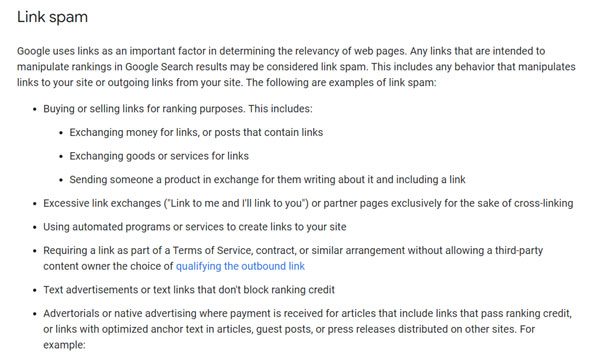- info@ithunter.co.uk
- 020 4577 0200
- Monday - Friday: 8am - 6pm
Toxic backlinks are harmful links pointing to a website, often from low-quality or spammy sources, potentially leading to negative SEO consequences.
But there is no consensus among SEO experts about whether toxic links actually exist and what, if anything, should be done about them.
Toxic backlinks can originate from various sources, including:
Spammy Websites: Links from websites with low-quality content, excessive advertising, or suspicious activities.
Link Farms: Networks of websites created solely for link building, often lacking genuine and relevant content.
Irrelevant Directories: Inclusion in directories that are unrelated to the website’s niche or industry.
Malicious Sites: Links from websites involved in malware distribution, phishing, or other malicious activities.
Comment and Forum Spam: Inappropriate or irrelevant links added to blog comments, forums, or discussion boards.
Paid Link Schemes: Purchased links from services that violate search engine guidelines.
Automated Link Building Tools: Links generated through automated tools without considering quality or relevance.
Negative SEO Attacks: Deliberate attempts by competitors to harm a website’s SEO by creating toxic backlinks.
It is vital for website owners to regularly monitor their backlink list and disavow toxic backlinks using tools like oogle Disavow Links to prevent potential damage to their site’s search engine rankings.
Google itself, in its recommendations for developers, provides examples of such manipulative links:

Before September 2016 Google could indeed downgrade your site due to spam links, after September 2016 Google changed its ranking algorithm and moved from downgrading pages to a system that tries to ignore bad links. Its algorithm is called Penguin now devalues spam by adjusting rankings based on spam signals rather than affecting the ranking of the entire site.
However, a significant portion of SEO specialists (38%) do not think so, as they still disavow them. This doesn’t mean they don’t trust Google, they’re just being careful and doing what Google should do because it’s more reliable.
More than 7 years have passed since the implementation of this algorithm, and it can be assumed that Google is now pretty good at ignoring most low-quality spam links. Does this mean that this is a perfect algorithm? No. But this also means that you no longer need to worry about obvious low-quality link spam.
If you buy or create entire clusters of links that Google classifies as “link spam,” then yes, they can seriously damage your rankings because Google will see this as a link manipulation scheme.
Therefore, I would recommend disavowing links only if he has “a very large number of links that the buzz would consider “manipulative.” Google may algorithmically lower a site’s ranking if it detects a large number of spam and manipulative links.
Conduct a manual backlink audit using a tool like Ahrefs’ Site Explorer. It shows you the words and phrases people use when referring to you. If they look unnatural or exactly match the keywords you are trying to rank for, this could be a sign that you paid or that they are other links designed to manipulate rankings.
Just remember that you don’t need to disable 1 or 2 links, you are looking for entire patterns of unnatural links ranging from tens to hundreds.
If you have a lot of unnatural, toxic backlinks and you can’t influence the webmaster of the site on which they are located, Google advises you to disavow them using its tool.
You will find detailed instructions on how to disavow bad links on the Google page. https://support.google.com/webmasters/answer/2648487?hl=en
“Toxic backlinks” is a term coined by some SEO tools to show off their uniqueness, usefulness and to scare you. This doesn’t mean that bad links detected by these programs can’t harm your site’s ranking. However, for most website owners, this problem is not relevant.
